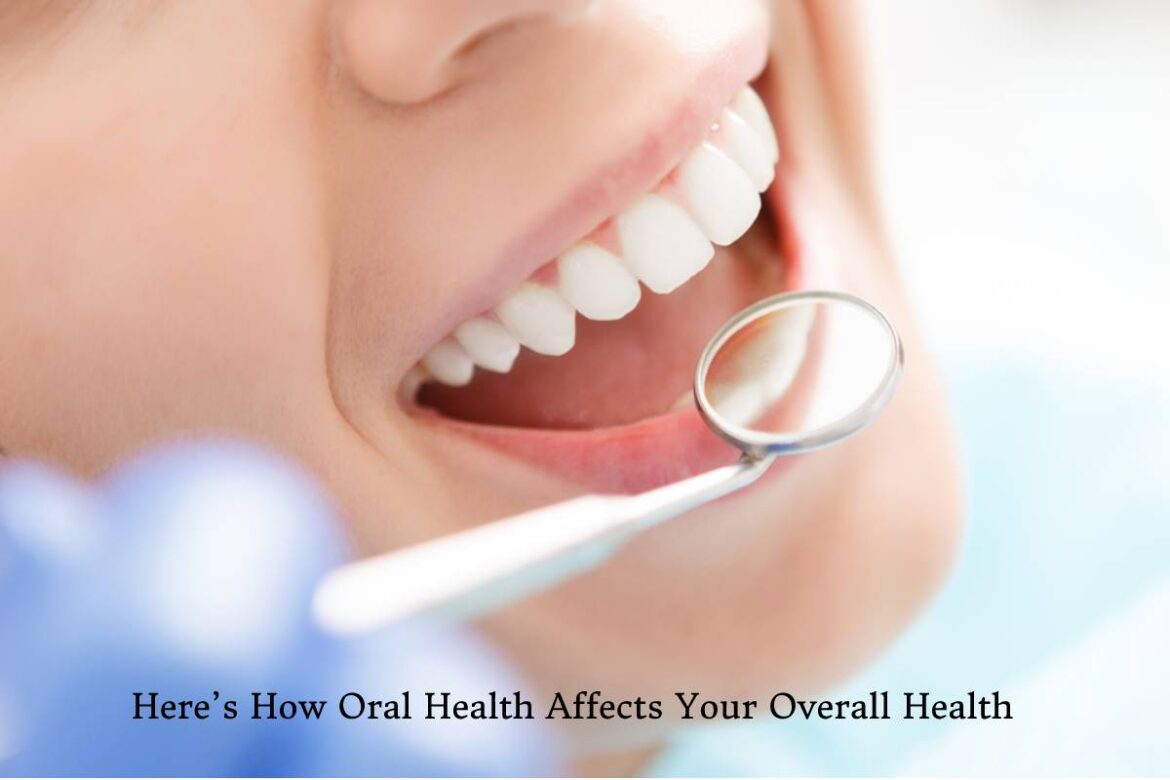Oral Health Affects Your Overall Health – “You are what you eat” takes on a whole new meaning when you learn just how important oral health is to your overall physical health.
You know that eating lots of sugary, acidic foods and not brushing and flossing regularly could lead to poor oral health outcomes. Perhaps you’re even mentally prepare for oral surgery at some point in the future.
What you might not know is that good oral health is closely correlate with good overall health. Taking good care of your teeth and gums reduces your risk of dental and gum tissues that are known to contribute to cardiovascular disease, respiratory problems, and pregnancy complications.
Let’s take a closer look at how oral health influences physical health and vice versa.
What Are the Most Common Oral Health Issues?
According to the Centers for Disease Control, common oral health problems include:
- Tooth Disease (Cavities): A vast majority of American adults have had at least one cavity. Fortunately, one cavity won’t condemn you to a life of chronic health problems. But the more you have over the years — and the less work you do to treat their underlying causes—the more your physical health will suffer.
- Gum Disease (Periodontal Disease): Periodontal disease is a major cause of tooth loss in adults. Left untreated, it can cause problems far beyond the mouth and may contribute to another serious oral disease: oral cancer.
- Oral Cancer: Don’t be fool by oral cancer’s “good” five-year survival rate. It’s a serious, life-changing disease that requires aggressive intervention.
What Health conditions Are caused By poor oral health?
Poor oral health correlate with a number of health issues elsewhere in the body. The connection isn’t always clear — it’s common to have poor oral hygiene for years before other issue develop—but the causative link between oral health and general health is well-establish.
- Cardiovascular Disease: Poor oral hygiene is correlate with the presence of harmful bacteria that may increase cardiovascular inflammation and raise your risk of stroke, heart attack, and other serious problems.
- Heart Inflammation (Endocarditis and Pericarditis): Those harmful bacteria migrate to the heart and cause inflammation in the heart wall—a potentially life-threatening condition.
- Pregnancy Complications: Gum disease correlate with poor outcomes in pregnancy, including premature birth and low birth weight.
- Respiratory Disease: When harmful oral bacteria migrate to the respiratory tract, they can cause persistent infection. In the lungs, they can cause pneumonia, which can be life-threatening if left untreated.
What Health Conditions Can Cause Poor Oral Health?
Poor oral hygiene isn’t always a root cause of chronic health issues. For many patients, it’s the other way around: Chronic health problems contribute to oral health issues, which in turn can worsen existing ailments or encourage new ones to develop.
Preexisting health conditions that may cause oral health problems to include:
- Type 2 diabetes
- Osteoporosis
- Age-related cognitive issues, such as Alzheimer’s disease
- Certain autoimmune disorders
- HIV/AIDS
Brush and Floss Your Way to Better Health
Maintaining good oral hygiene through regular brushing and flossing is vital to achieving better oral health, regardless of how long it’s been since you last prioritized your oral care routine. But did you know that these simple habits can also contribute to your overall well-being? Research suggests that brushing your teeth twice a day using proper technique and flossing at least three times a week can have a positive impact on various aspects of your health.
While it’s important to note that brushing and flossing alone may not be a cure-all solution, they certainly play a significant role in oral health maintenance. However, the benefits don’t stop there. Oral health is closely linked to general health, and studies shown maintaining good oral hygiene associate with improve health outcome overall. While it may not directly guarantee better cardiovascular health or the ability to control Type 2 diabetes, it’s certainly a step in the right direction.
So, why not invest a little time each morning and evening to take care of your teeth and gums? The small effort to brush and floss regularly is a worthwhile investment in your long-term well-being. By prioritizing your oral hygiene, you’re contributing to a healthier lifestyle and potentially reducing the risk of dental issues and related health complications.
In your pursuit of optimal oral care, consider exploring eco-friendly alternatives for your dental hygiene products. One such option is the use of eco friendly floss, which not only benefits your oral health but also minimizes your ecological footprint. Eco Roots offers a range of zero-waste floss options that are designed to promote both personal and environmental well-being.
By incorporating eco-friendly floss into your dental routine, you can contribute to sustainability efforts while still maintaining excellent oral hygiene. Make conscious choice to care for your teeth, gums. And the planet by embracing eco-friendly alternatives such as eco floss from Eco Roots.
Summary
Remember, your oral health journey is a lifelong commitment. And every small step you take can lead to significant improvements in your overall health and well-being. Start by brushing and flossing consistently, and consider making sustainable choices for your dental care routine. Your smile and the planet will thank you!


